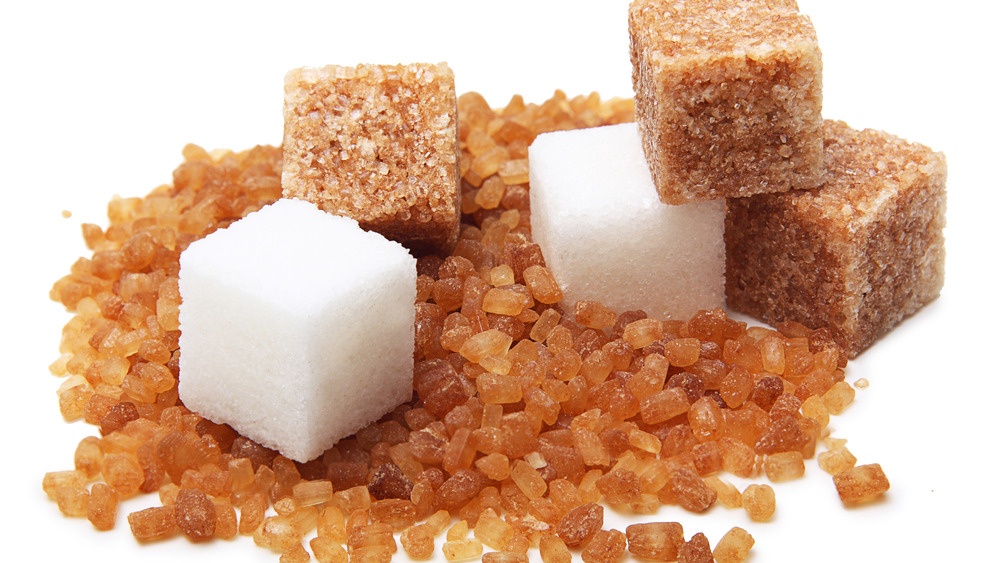The Science Behind Cane Sugar Processing: How Sweet Taste is Refined
The Science Behind Cane Sugar Processing: How Sweet Taste is Refined
Blog Article
A Comprehensive Summary of the Health And Wellness and Economic Effects of Walking Cane Sugar Handling on Neighborhood Communities
Cane sugar handling plays a critical duty in shaping the financial landscape of local communities, offering work chances and promoting secondary industries. The wellness implications associated with high sugar consumption can not be neglected, as they contribute to increasing prices of excessive weight and diabetic issues.
Economic Advantages of Walking Stick Sugar Handling
Cane sugar processing provides considerable economic benefits that prolong past the immediate agricultural industry. The cultivation and handling of sugarcane create many work chances, from farming to production and circulation. This work generation not just supports local economic climates but likewise promotes neighborhood development by supplying stable earnings resources for families.
Furthermore, the sugar industry stimulates ancillary businesses, including transport, tools supply, and packaging solutions (Cane Sugar Processing). As these sectors grow, they add to an extra durable financial structure, enhancing overall area strength. The export potential of refined walking cane sugar additionally magnifies financial benefits, positioning areas as affordable gamers in global markets
Investment in contemporary handling centers can cause enhanced efficiency and effectiveness, consequently reducing waste and maximizing source usage. This shift not only profits the regional economic climate yet additionally sustains sustainability initiatives by decreasing environmental effects.
Additionally, the revenue produced from walking stick sugar processing can be reinvested in regional infrastructure, education and learning, and health care, promoting holistic community development. Overall, the financial benefits of walking stick sugar processing are multifaceted, supplying a foundation for enduring prosperity in farming areas.
Wellness Threats Linked With Sugar Intake
Excessive sugar consumption presents significant health risks that call for serious focus. High intake of included sugars, specifically from refined drinks and foods, has been connected to numerous wellness issues.
In addition, high sugar usage is related to cardio illness. Elevated blood sugar levels can bring about insulin resistance, a forerunner to various heart-related problems. In addition, sugar can have detrimental results on oral health, causing tooth cavities and gum tissue disease, as microorganisms in the mouth flourish on sugar, creating acids that erode tooth enamel.
Moreover, emerging study recommends a possible link between high sugar usage and mental wellness conditions, such as anxiety and anxiety. As areas come to grips with these wellness dangers, it ends up being vital to promote recognition and urge much healthier dietary choices. Attending to sugar consumption is vital not only for specific health however likewise for the total health of local communities, emphasizing the requirement for extensive public health techniques.
Ecological Effects of Sugar Manufacturing
Regularly neglected in discussions concerning sugar's ramifications is the substantial environmental effect of sugar manufacturing. The cultivation of sugarcane often requires extensive land use, leading to logging, loss of biodiversity, and disturbance of regional communities. The conversion of woodlands and marshes right into sugar vineyards can result in environment destruction, harmful many species and altering eco-friendly balance.
In addition, sugar production is resource-intensive, consuming considerable amounts of water for irrigation. This can result in depletion of neighborhood water sources, adversely impacting both agricultural techniques and community access to clean water. Furthermore, the usage of chemical fertilizers and chemicals in sugarcane farming can contribute to dirt destruction and water pollution, as overflow from these chemicals enters neighboring rivers and lakes, more information impacting aquatic life and human wellness.
The environmental footprint reaches the handling phase, where power consumption and waste generation more intensify ecological concerns. Air pollution from shedding sugarcane areas, along with greenhouse gas discharges, contribute to climate change. As such, the ecological ramifications of sugar production warrant significant consideration, urging stakeholders to embrace even more sustainable techniques to alleviate these unfavorable results on regional environments and areas.
Work Development and Neighborhood Development
The ecological obstacles presented by sugar production are commonly counterbalanced by its capacity for economic benefits, especially in work development and area growth. The walking stick sugar sector functions as a significant source of employment in lots of backwoods, offering work across different skill degrees, from agricultural labor to handling and distribution duties. This work not just sustains private families but likewise contributes to the general economic vigor of regional communities.
Moreover, the establishment of sugar processing facilities stimulates ancillary businesses, such as transportation services, devices supply, and upkeep suppliers. As these services flourish, they create extra jobs and strengthen regional economies. The income generated from the sugar sector likewise causes raised tax obligation profits, which can be reinvested into area services such as education, facilities, and healthcare advancement.
In addition, the sugar sector frequently takes additional resources part in neighborhood growth campaigns, such as sustaining local colleges and health programs, consequently improving the lifestyle for citizens. By cultivating strong neighborhood connections and advertising financial development, the walking cane sugar handling field plays an essential duty in uplifting local populations, making it a crucial part of sustainable advancement techniques in sugar-producing areas.
Balancing Health And Wellness and Economic Growth
In browsing the intricacies of cane sugar processing, an important difficulty hinges on balancing health considerations with economic development. The sugar sector considerably adds to neighborhood economic situations by creating jobs, stimulating associated sectors, and increasing tax obligation profits. Nonetheless, the wellness ramifications connected with too much sugar usage can bring about persistent diseases such as obesity, diabetes, and cardio issues, which can concern public health systems and reduce workforce efficiency.

In addition, regulative frameworks can play a critical duty in guiding industry practices towards even more sustainable and health-conscious methods. By cultivating cooperation in between government bodies, health and wellness organizations, and the sugar market, areas can browse the duality of health and financial development, guaranteeing that the advantages of cane sugar handling are equitably shared while focusing on public health and wellness.
Conclusion
In verdict, the handling of walking stick sugar presents both considerable financial advantages and noteworthy health threats for local communities. While it fosters job creation and boosts regional growth, the affiliated health problems, specifically pertaining to weight see this website problems and diabetes, require a mindful balancing act. By promoting accountable intake and investing in area education and learning and lasting methods, it is feasible to take full advantage of economic benefits while reducing adverse health and wellness impacts, consequently making certain a much healthier future for local populations.
In addition, sugar can have harmful effects on dental health, resulting in tooth cavities and gum tissue disease, as microorganisms in the mouth thrive on sugar, producing acids that erode tooth enamel.
Resolving sugar intake is critical not only for specific wellness yet additionally for the total health of neighborhood communities, stressing the requirement for detailed public health methods.
Frequently forgotten in discussions regarding sugar's ramifications is the substantial environmental influence of sugar production. The health and wellness implications connected with excessive sugar consumption can lead to chronic diseases such as excessive weight, diabetic issues, and cardio issues, which can problem public health systems and decrease workforce performance.

Report this page